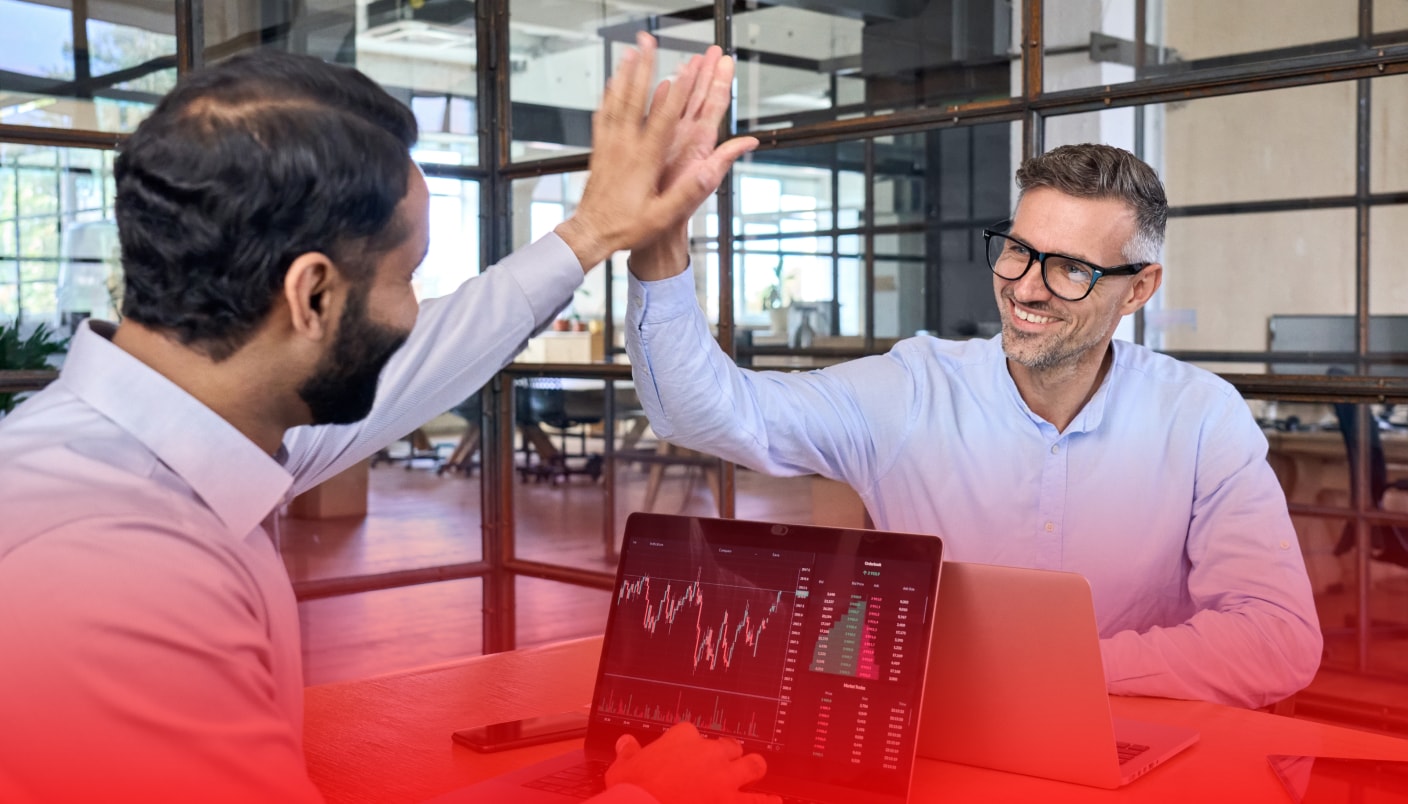Breaking News! 🚨 Top 10 brokers is here! See the most trusted trading platforms of 2024. Go now!
The Future of Social Trading: Trends and Innovations
Get insights into the future of social trading with our analysis of emerging trends and innovations. Stay ahead of the curve and anticipate the next big thing.
2 years ago, Jun 07, 9:33 am

Social trading has revolutionized the way traders interact, share ideas, and make investment decisions. By leveraging the power of online communities and social networks, traders can now gain insights from experienced professionals, mirror successful strategies, and collaborate in real-time. As the financial markets continue to evolve, social trading is poised to play an increasingly pivotal role in shaping the future of investing.
This article explores the emerging trends, technological innovations, and regulatory landscape that will shape the trajectory of social trading in the years to come.
Emerging Trends in Social Trading Technology
Social trading, also known as copy trading or mirror trading, is a form of investment strategy where traders can observe, follow, and replicate the trades of experienced and successful traders within a social network or online platform. This approach allows novice traders to learn from seasoned professionals, leverage their strategies, and potentially generate profits by mirroring their trades.
Here’s how social trading typically works: experienced traders share their trading activities, strategies, and insights on social trading platforms, which are accessible to other users. Novice traders can then evaluate the performance and risk profiles of these experienced traders and choose to automatically copy or mirror their trades in their own trading accounts. The social trading platform facilitates this process by connecting the accounts and executing the same trades in the follower’s account as the leader’s account.
With the rapid growth and adoption of social trading, several emerging trends are shaping the future of this technology:
- Gamification and immersive experiences: Social trading platforms are embracing gamification elements to enhance user engagement and make the trading experience more interactive and enjoyable. Features like leaderboards, achievement badges, and virtual trading challenges create a sense of friendly competition and incentivize traders to actively participate in the community.
- Advanced data visualization and analytics: Cutting-edge data visualization techniques and advanced analytics tools are becoming integral components of social trading platforms. These tools help traders gain deeper insights into market trends, sentiment analysis, and performance metrics, enabling more informed decision-making.
- Integration of social media and messaging: Social trading platforms are seamlessly integrating with popular social media platforms and messaging apps, allowing traders to share insights, discuss strategies, and collaborate in real-time. This integration facilitates a more natural flow of communication and fosters a sense of community among traders.
- Decentralized social trading networks: The rise of blockchain technology and decentralized finance (DeFi) has paved the way for decentralized social trading networks. These networks leverage smart contracts and distributed ledgers to facilitate secure and transparent social trading activities, eliminating the need for intermediaries and enabling peer-to-peer interactions.
- Augmented reality (AR) and virtual reality (VR) integration: Social trading platforms are exploring the potential of AR and VR technologies to create immersive trading environments. These technologies can provide traders with interactive visualizations of market data, simulated trading scenarios, and virtual meetup spaces for collaborative discussions and strategy sharing.
Integration of Social Trading with AI and Machine Learning
The integration of artificial intelligence (AI) and machine learning (ML) technologies is poised to revolutionize social trading platforms. AI and ML algorithms can analyze vast amounts of market data, social media sentiment, and trading patterns, providing traders with valuable insights and personalized recommendations. These technologies can identify potential trading opportunities, detect market anomalies, and even suggest optimal entry and exit points for trades based on historical data and real-time market conditions.
Moreover, AI and ML can enhance the social trading experience by facilitating more intelligent matchmaking between traders and potential mentors or leaders to follow. By analyzing trading styles, risk appetites, and performance metrics, these algorithms can recommend compatible traders who align with an individual’s investment goals and preferences. This personalized approach can increase the likelihood of successful trades and enhance the overall effectiveness of social trading strategies.
Additionally, AI and ML can be integrated into trading bots and automated trading systems, allowing traders to leverage the collective wisdom of the social trading community while still maintaining control over their investment decisions. These intelligent systems can continuously learn and adapt to changing market conditions, providing traders with a competitive edge in dynamic financial markets.
Regulatory Developments Impacting Social Trading
As social trading gains traction and attracts a growing number of participants, regulatory bodies have taken notice, aiming to ensure investor protection and market integrity. Regulatory developments are playing a crucial role in shaping the future landscape of social trading. Authorities are closely monitoring these platforms to address potential risks and establish guidelines for transparency, disclosures, and fair practices.
One significant regulatory focus is on the prevention of market manipulation and insider trading within social trading communities. Regulators are emphasizing the need for robust identity verification processes, monitoring mechanisms, and strict enforcement of rules against individuals or groups attempting to influence market prices through coordinated efforts or the dissemination of misleading information.
Additionally, regulators are pushing for greater transparency in the disclosure of trading strategies, risk profiles, and performance metrics of social trading leaders or signal providers. This transparency is essential for followers to make informed decisions and understand the potential risks associated with mirroring trades. Platforms may be required to provide clear and comprehensive information about the track records, trading histories, and potential conflicts of interest of their top traders.
Europe:
- The European Securities and Markets Authority (ESMA) has issued guidelines for the regulation of copy trading/social trading platforms operating in the European Union.
- ESMA requires these platforms to obtain appropriate licenses, such as the Markets in Financial Instruments Directive (MiFID) license.
- Platforms must comply with strict rules on transparency, risk disclosures, and investor protection measures.
- In 2022, ESMA consulted on potential changes to strengthen oversight of social trading, including tailored organizational requirements.
United States:
- In the U.S., social trading platforms are primarily regulated by the Securities and Exchange Commission (SEC) and the Commodity Futures Trading Commission (CFTC).
- The SEC has warned about potential risks of social trading, including conflicts of interest, lack of transparency, and potential for manipulation.
- Platforms may need to register as broker-dealers or investment advisers, depending on the services offered.
- The CFTC has emphasized the need for robust risk disclosures and has taken enforcement actions against platforms for violating regulations.
United Kingdom:
- The Financial Conduct Authority (FCA) regulates social trading platforms in the UK.
- Platforms require authorization and must comply with FCA rules on conduct, disclosure, and client asset protection.
- In 2021, the FCA published guidance clarifying expectations for copy trading platforms, including due diligence on signal providers and clear risk warnings.
While regulations vary across regions, there is a common emphasis on transparency, investor protection, prevention of market abuse, and licensing/authorization requirements for social trading platforms to operate legally.
Predictions for the Future of Social Trading
As social trading continues to gain momentum and evolve with technological advancements and regulatory developments, several predictions can be made about its future trajectory:
- Increased mainstream adoption: Social trading is expected to transition from a niche investment strategy to a more widely accepted and mainstream approach. As the benefits of collaborative trading and knowledge-sharing become more apparent, a broader range of investors, from retail traders to institutional players, may embrace social trading platforms.
- Emergence of advanced analytics and AI-driven insights: The integration of artificial intelligence (AI) and machine learning (ML) will play a pivotal role in enhancing the social trading experience. These technologies will enable advanced analytics, predictive modeling, and personalized insights, empowering traders to make more informed decisions and optimize their strategies based on collective intelligence.
- Decentralized and blockchain-based platforms: The rise of decentralized finance (DeFi) and blockchain technology will likely fuel the growth of decentralized social trading platforms. These platforms will leverage smart contracts, distributed ledgers, and peer-to-peer networks to facilitate secure and transparent trading activities without the need for intermediaries.
- Immersive and gamified experiences: Social trading platforms will increasingly incorporate gamification elements, augmented reality (AR), and virtual reality (VR) technologies to create more engaging and immersive trading experiences. These features will not only enhance user engagement but also provide interactive visualizations and simulated trading environments for education and strategy development.
- Regulatory clarity and industry standards: As social trading gains traction, regulatory bodies are expected to provide clearer guidelines and establish industry standards to ensure investor protection, transparency, and fair practices. This regulatory clarity will foster trust and encourage wider adoption of social trading platforms by both individual and institutional investors.
- Integration with traditional financial services: Traditional financial institutions, such as banks and brokerages, may increasingly integrate social trading features into their existing platforms or partner with dedicated social trading providers. This integration will enable them to cater to the evolving demands of their clients and tap into the potential of collaborative trading strategies.
Conclusion
While the future of social trading is uncertain, one thing is clear: it is poised to revolutionize the way traders interact, learn, and make investment decisions, leveraging the power of collective intelligence and technological advancements.
If you’re seeking reliable and reputable brokers for social trading, our platform offers a comprehensive rating system where you can select the best options.
Among the top-rated brokers on our platform is nomo, renowned for its user-friendly interface and robust social trading features. Alongside nomo, you’ll find other highly regarded brokers that have been thoroughly evaluated based on their regulatory compliance, trading conditions, educational resources, and overall reputation within the social trading community.
Get SCTA's daily newsletter in your inbox every weekday.
You may unsubscribe at any time.
